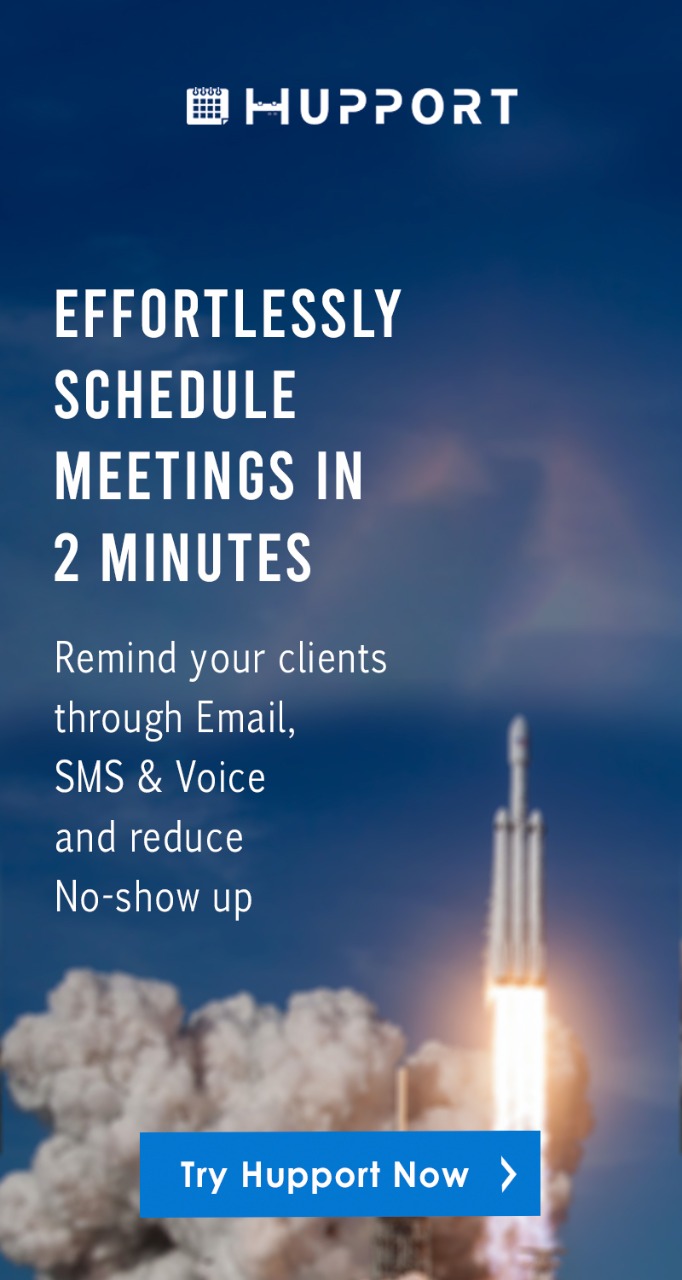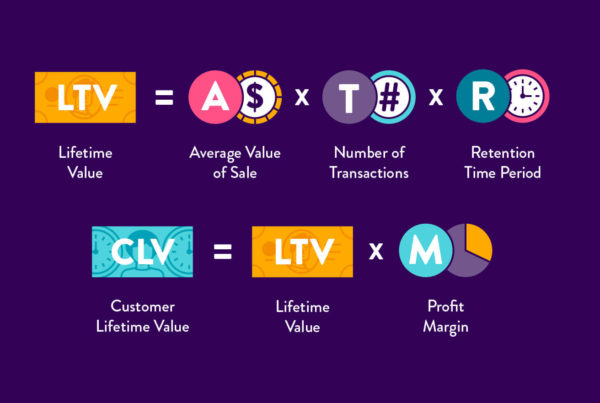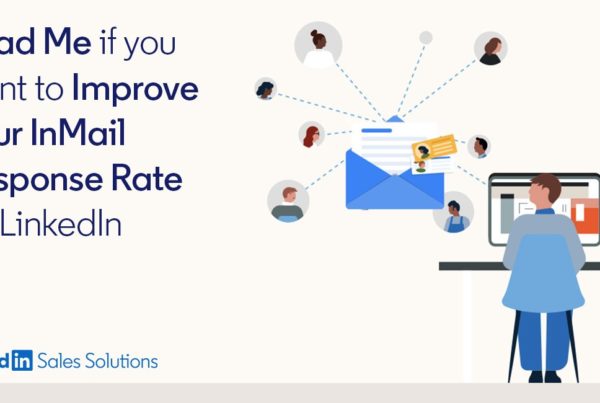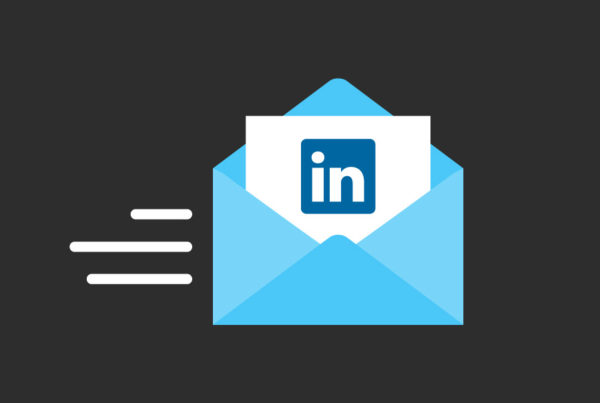Have you applied for a job with a recruiter but you still have not gotten any response after weeks of application? Have you cold emailed a recruiter to inform him/her on your interest in a job position but after 3 weeks you still did not get any response?
Are you in any of these categories? Follow up email is the next step you need to take to increase your response chances.
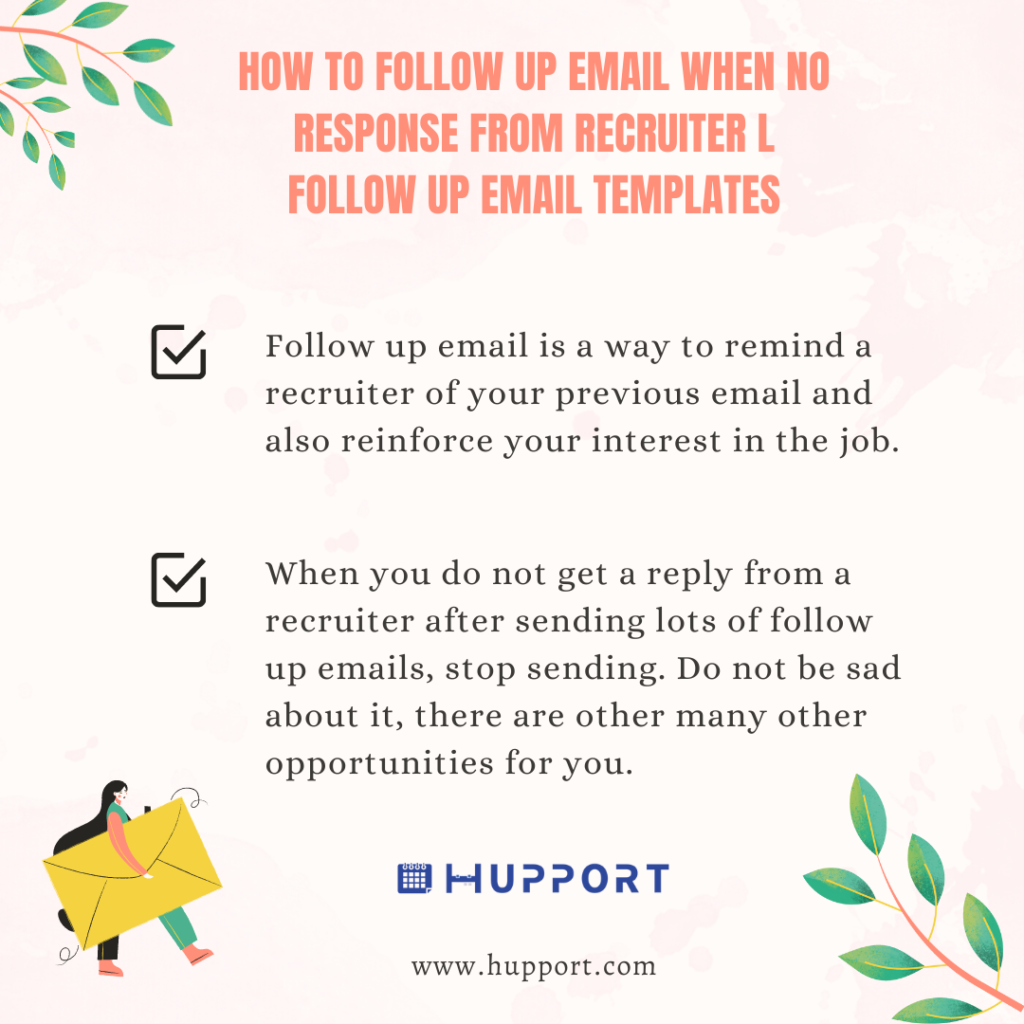
How to Follow up Email when no response from Recruiter l Follow up email templates
Follow up email is a way to remind a recruiter of your previous email and also reinforce your interest in the job.
When following up on a recruiter, you also need to know when to stop. Some recruiter may not just be interested in you and no matter how many follow-up emails you send, they won’t reply.
This does not mean that they do not like you or you have offended them. It may be that the position is no longer available, you do not have the required skills and experience they need for the job, or any other reasons.
When you do not get a reply from a recruiter after sending lots of follow up emails, stop sending. Do not be sad about it, there are other many other opportunities for you.
How to Follow up when no response from a Recruiter
Writing a follow up email and sending the email to a recruiter requires some important steps. When you do not follow the right steps or do the right thing, your follow-up email can be ignored or trashed.
There are things you should do for your follow-up email to be effective and produce desired results.
Use a compelling subject line
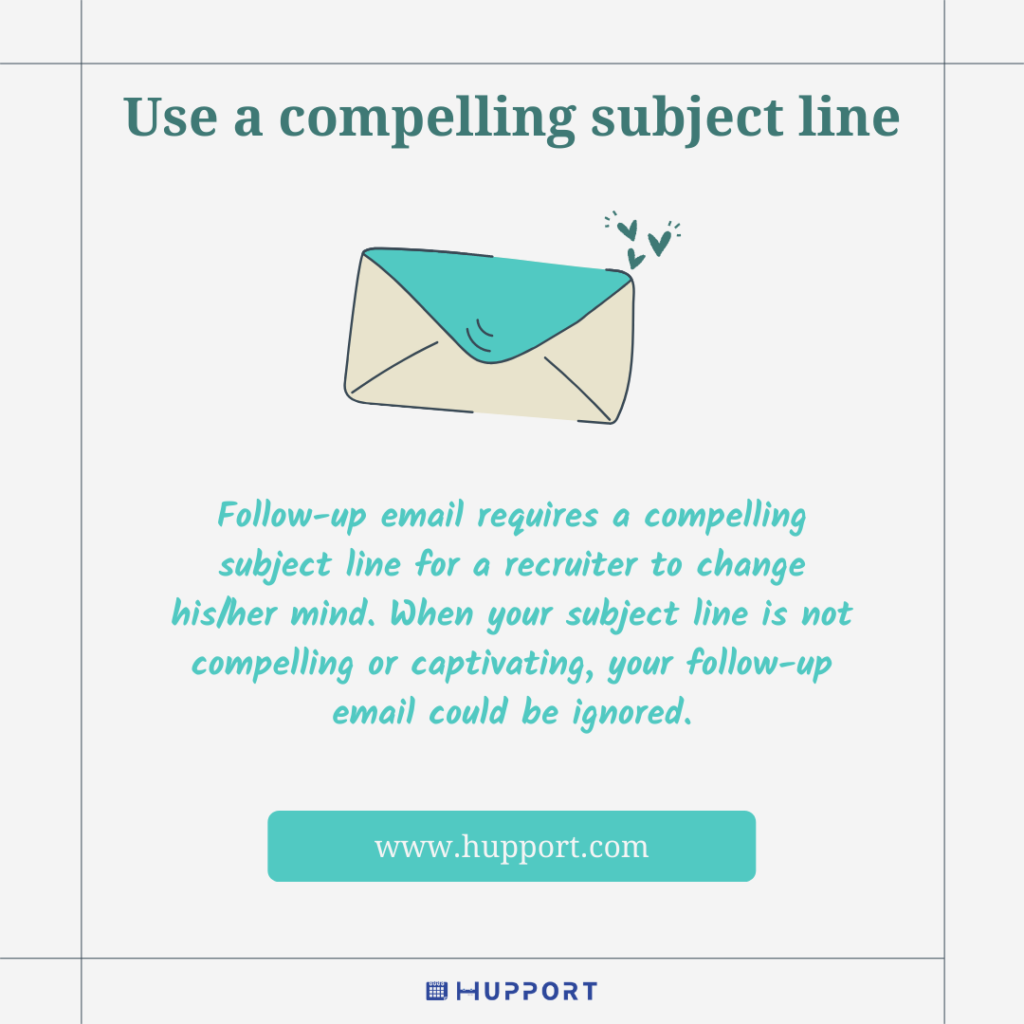
Use a compelling subject line
Follow-up email requires a compelling subject line for a recruiter to change his/her mind. When your subject line is not compelling or captivating, your follow-up email could be ignored.
Subject lines such as “Why I’m the right person for this job”, “Why you should contact me”, are ideal.
Also, note that your subject line should not be too short or too long.
Reiterate your interest in the job but do not be too pushy
You can further increase your chances of getting a response by reiterating your interest in the job. Let the recruiter know how excited you are to work in the company.
Be friendly in your approach and do not be too pushy. Let the recruiter know that working in the company will add value to you and also be of great benefit to the company.
Some recruiters do not reply the first cold email you sent in order to know the extent to which you want the job. They expect to receive a follow-up email from you. When you do not follow up, that is the end of it.
Your follow-up email should be brief
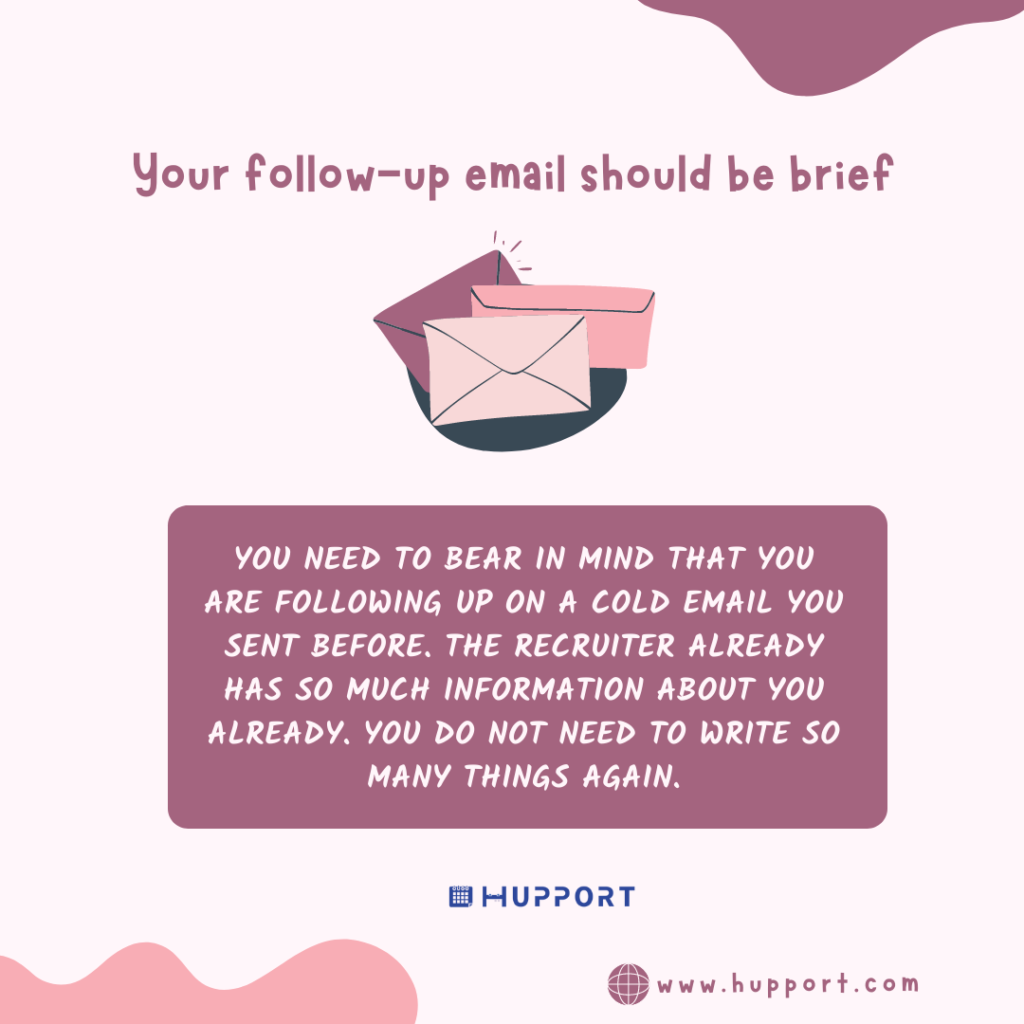
Your follow-up email should be brief
You need to bear in mind that you are following up on a cold email you sent before. The recruiter already has so much information about you already. You do not need to write so many things again.
Your follow-up email should be as brief as possible. A follow-up email is a form of reminder in respect to your previous email. Do not make the recruiter feel like he/she is reading an email from a different person.
Your follow-up email should link with your previous email.
Give reasons why you should be accepted for the job.
A follow-up email is another chance you have to sell yourself more to the recruiter. Let the recruiter know why you are a better candidate for the job. Give the recruiter reasons why he/she should respond to you.
If you have any new skills or information that you did not state in your first email, this is another chance to state them. Add any important information about you that you know could increase your chances of getting a response.
Ask questions
Ask questions about the previous email you sent. Ask the recruiter if he/she received your previous email or have read your previous email.
You can also ask any important questions regarding the job and any other related questions. Do not ask irrelevant questions or ask questions that do not have anything to do with the job.
Ask an open-ended question where by the recruiter will be compelled to answer you. You can ask if the date for the interview for the job has been fixed?
Be polite in your approach
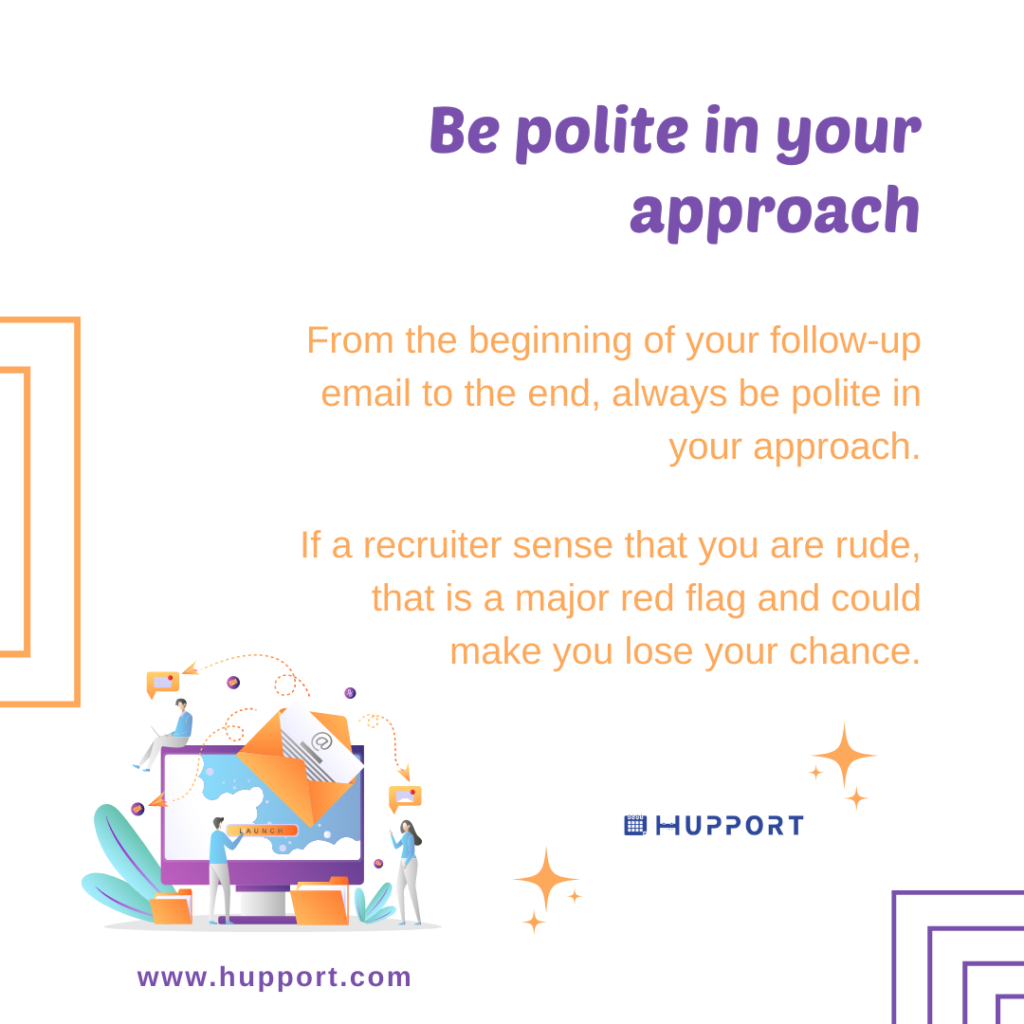
Be polite in your approach
From the beginning of your follow-up email to the end, always be polite in your approach. If a recruiter sense that you are rude, that is a major red flag and could make you lose your chance.
If you want to ask questions, ask in a polite manner. Even if you have not received a reply, you can thank the recruiter for taking out time to read your email. Acknowledge his/her effort. Be polite and professional.
Do not send follow-up emails too early or too frequently
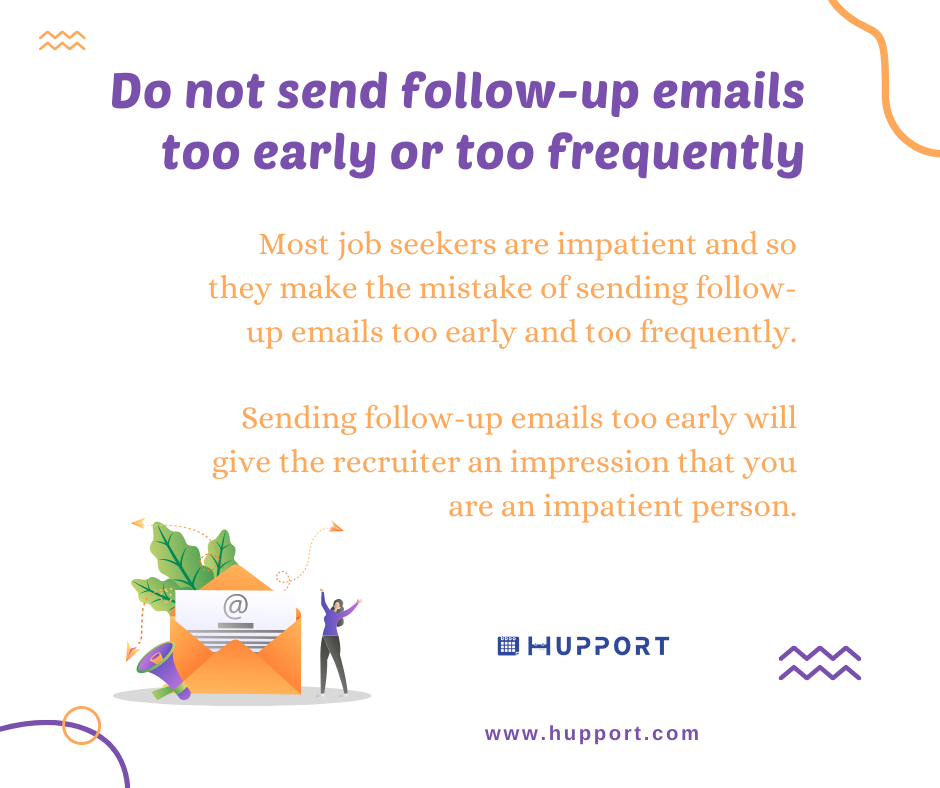
Do not send follow-up emails too early or too frequently
Most job seekers are impatient and so they make the mistake of sending follow-up emails too early and too frequently. Sending follow-up emails too early will give the recruiter an impression that you are an impatient person.
Recruiters do not want to hire someone that is impatient. Wait for at least two weeks after you have sent the first cold email. If you did not get any response after the first two weeks, then you can send a follow-up email.
It is also advisable not to send follow-up emails too frequently. Sending follow-up emails too frequently will anger the recruiter because you are flooding his/her inbox with too many emails.
After sending a follow-up email, wait for about a week and if still no reply, then you can send another follow-up email.
Recruiter Follow up email templates
When writing a follow-up email for a recruiter you need to apply all the points that we talked about. We are going to show some good examples of some follow-up emails for recruiters.
Here is a good example of Recruiter Follow up email template
Dear [recruiter’s name],
Hope you are doing great! I reached out to you about 2 weeks ago concerning the job listing of [job title]. I have been eagerly waiting for your reply but unfortunately, I have not gotten a response from you.
I know you must be a very busy person, and as such could not reply me up until now. I hope this follow up email serves as a reminder to you. I’m excited about getting your reply and to know of any new updates.
Warm regards,
[Your full name]
If you critically look at the follow-up email above, you will see that it is a polite follow-up email to remind the recruiter of a cold email that was sent 2 weeks ago. In this template, the job seeker did not ask any question, he only acknowledges the recruiter.
With a follow-up email like this, the recruiter will most definitely think that the job seeker is patient by waiting for a reply for two whole weeks. The recruiter will also think that the job seeker is respectful and considerate, owing to the fact that the job seeker acknowledged that the recruiter might be a busy person.
The job seeker also reminded the recruiter of the previous email and reiterate the importance of getting a reply and updates from the recruiter.
A follow-up email like this will almost certainly get you a response.
Here is another good example of Recruiter follow up email template
Dear [Recruiter name]
I have been following up on your hiring process on your company’s website and social media pages. I was made to understand that the interview will be held by the end of the month. It is quite unfortunate that I have not received any reply from you in response to my last email.
I will like to ask if there is any problem? You will be doing me a great favor if you could let me know why I have not gotten any reply from you. If you require any additional information from me, please do not hesitate to ask.
Please, I will greatly appreciate a response from you. Get in touch with me and let me know if there is anything else I need to do.
Warm Regards,
[Your full name]
This template above is quite different from the first one. Here, the job seeker is a bit more certain. The job seeker did more research on the hiring process of the job. The job seeker is trying to let the recruiter know that he is aware of the current situation.
The job seeker asked a polite question which the recruiter needs to answer. With all these the job seeker wrote, there seems to be no hiding place for the recruiter. The recruiter will be forced to respond to the job seeker.
The job seeker intelligently asked if there is any additional information that is required of him/her. Clearly, the job seeker is an intelligent person, hence the recruiter will be forced to give in on his request and respond to him/her.

